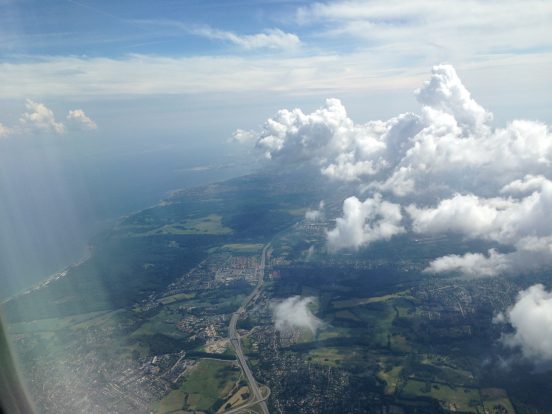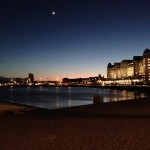Yesterday I left Norway after 6 months of calling it home. Next time I return (and am I ever happy I get to return!) it will be the middle of September.
I didn’t think this goodbye would be such a sad one. But it was. Many of the friends I met this semester will not be returning in the fall. I feel like it took half the semester to establish the fun dynamics of our friend group, only to have it be split up too soon. And it made me realize that as much as I’m getting good at going to unfamiliar places, I have still not perfected the art of leaving familiar ones.
Let me back track and update you on my plans for the rest of the year. I’ve just begun my journey home. I’ll be hopping through a couple European cities before returning to Vancouver for one month. After that I am going to India for a six week field course with NMBU’s Department for International Environment and Development Studies. (I’m sooooo excited for this!!). Finally, I will return to Norway in mid-September for one more semester of exchange.
As I make my journey back to Vancouver, I’ve been preparing myself for the many questions that I’m sure will arise in conversations with my friends and family. What’s it like to live in Norway? in Europe? How was it different and did you like it? What did you learn? And yadadada…
Not sure if I can answer all of these for you. Not sure if I ever will be able to fully explain all the details in words. But I can give you a few reasons why people chose to study in Norway from my experience. These are things I had no idea about before I came, and that often arose in conversations I had with other international students. I hope these might be helpful for students who want to see if Norway is a good match for them.
If you love to cook or want a chance to practice your cooking skills.
Going out to eat is expensive. Very very expensive. So most students try to avoid it if they can. To sit in a cafe and have a coffee and pastry will easily cost you $10 CAD or more. To go out for lunch – about $30. Norway’s food culture is simple and homemade. I’ve noticed that grocery stores sell a lot less processed food in general. This means baking your own bread, pastries, pancakes, soups, stews and sauces is super common. If you are someone who relies on fast food, buying food on campus or pre-made meals you may want to consider this if you move to Norway or be open to changing your habits for the sake of money. I’ve personally found myself eating healthier and more wholesome food. I have been cooking with other exchange students to share cultural recipes and the food bill.
Introverts unite and extroverts adjust.
This is a country perfectly suited for introverts. Extroverts: you’ll either appreciate the peacefulness of Norway or learn to adjust. My first impression of Norway was that it’s noticeably quiet in all public places. People, especially strangers, tend to communicate only when necessary or not at all. Systems are designed to minimize human interaction and in turn human error. For example, self-checkout at the grocery store, hotels, public transport, some restaurants and there’s a smartphone app for just about anything. I agree that this is why many visitors find Norway a socially “cold” country, but I think they are too harshly judged for this. Norwegians are social and friendly, they just have a different concept of what is considered polite and impolite. Noise in general tends to be considered impolite.
Reconnect with nature and rural environments.
Most of Norway is rural, small towns. Even the big cities have a relaxed and less stressful environment compared to other European cities. Breathtaking views, hikes, small islands, countless outdoor activities and retreats are at your doorstep – even in the urban capital of Oslo.
High standards of cleanliness.
You will be spoiled with some of the best and most well designed public transport systems in the world (no wonder tickets cost so much!).
Free education and health care!
Even international students pay NO TUITION and minimal student fees. We’re talking like $120 CAD per semester. It makes Norway a desirable choice for many international students, especially in graduate and postgraduate studies. This lack of tuition pretty much makes up for the expensive costs of living and food. The healthcare system covers all services above a certain price and all emergency services (I think… you should maybe do more research on this because I have luckily not needed to use any health services). From what I’ve been told, small things like self- initiated checkups and blood tests need to be paid for out of pocket or by your private insurance, but all other large medical costs are covered by the state.
If you are a self-motivated student. If you want a break from campus life.
Don’t expect much academic guidance or support because you are expected to guide and motivate yourself. Most of the time bachelor and masters classes will not be super interactive. It’s common for classes to be cancelled, rescheduled and syllabuses to change. This being said, classes at most universities that are offered in English have students from a wide range of backgrounds, cultures and opinions. It makes for interesting debates and perspectives. Be flexible and open minded. Put in as much as you want to get out of your course or degree. Universities will treat you like an adult who can make their own decisions. Your identity is not wholly ‘student’ – you are a person who happens to be in school whilst doing other things.
I’m so glad I chose Norway! It’s been a peaceful and wholesome place to call home. And when I return in September I have no doubt that I will feel like a part of me is returning home.
-V





